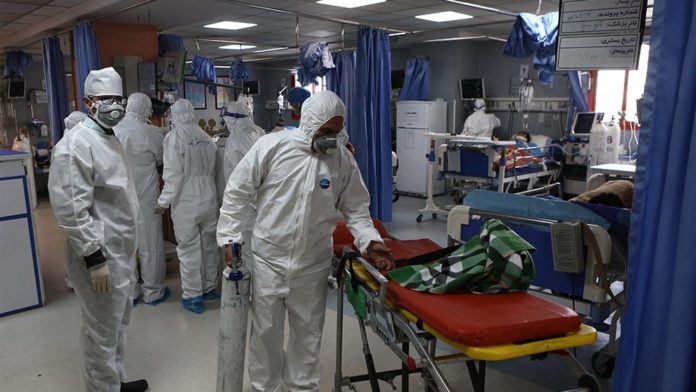Understanding the scope of the COVID-19 pandemic gives governments the information they need to allocate resources, but the availability of reliable and accessible diagnostic tests is limited. Canadian scientists are developing multiple alternatives to bypass the sluggish pace of testing.
The PCR (polymerase chain reaction) method is the primary test for COVID-19, but it requires a dedicated lab with trained technicians and can take days to get a result. In the world’s richest countries, these labs are at capacity and struggling to keep up with the workload, and the matter is exponentially worse for low-to-medium income countries.
Provinces across Canada are facing this issue. In Ontario, there are approximately 7,450 confirmed cases at the time of writing and the authorities are scrambling to increase daily testing figures to 16,000 by May 6.
“Lab-in-a-box” could skip the hurdles of the PCR method
Enter a creative thinker like Keith Pardee, whose team has devised a “lab-in-a-box” which could speed up testing and make it more affordable.
“The kit is literally the size of a couple of cardboard moving boxes,” said Pardee, an Assistant Professor of Pharmacy at the University of Toronto. “It will have the ‘pop-up’ capacity to establish a diagnostics lab essentially anywhere it is needed. Our goal is to create lab-in-a-box kits that provide 14,000 tests for COVID-19.”
As reported by University of Toronto News, Pardee’s kit contains multiple well plates roughly the size of two playing cards along with pipettes to handle the samples. Each plate has 384 wells and can perform one test.
In addition, each kit contains a printed instruction manual and a reader called PLUM which analyzes and displays the result. To aid development, the team received a $1 million slice of the federal government’s $27 million investment aimed at researching COVID-19. Pardee noted that some of this money will go to the creation of online instructional videos to help with remote administration run smoothly.
Option could make big impact in struggling communities
Technology like Pardee’s kit may be able to deliver a tailored solution for Canadians in unique circumstances. Isolated northern communities who currently have to send samples to faraway labs could benefit, as well as port authorities monitoring our borders.
It’s also a cost-effective alternative, and that means that poorer countries lacking facilities may have an opportunity to increase their testing capacity.
“What we are trying to do is make that functional clinical capacity available more globally,” said Pardee to The Medium. “Our current test format costs about $2 per test. In the proposed COVID-19 work, our goal is to reduce the cost to [approximately] $0.25 per test.”
This isn’t Pardee’s first brush with portable testing kits. In 2016, he collaborated on a kit that could test for several diseases including the Zika virus. The kit turned out to be on par with the PCR tests for accuracy (~99%) but it was cheaper and more accessible. The COVID-19 “lab-in-a-box” kit is due to be used in patient trials in Vietnam and Brazil as well as Canada.
“We need to take our tool through the necessary regulatory process, but we believe it could really make an important difference in helping more people be able to be tested [for COVID-19] at a lower cost than traditional technology,” Pardee says.
‘Spartan Cube’ may offer remote testing in under an hour
Pardee isn’t the only Canadian innovator, however. Spartan Bioscience’s ‘Spartan Cube’ was recently approved for distribution by Health Canada. The portable DNA analyzer can reportedly complete a test in under an hour using a simple nose or throat swab.
Once the sample is inserted, DNA is extracted and millions of copies are made. The cartridge uses an optical system to detect increased fluorescence and algorithms then generate a test result.
Several provinces have jumped at the opportunity to add this tool to their gear. Ontario requested 900,000 kits, Alberta asked for 100,000, and Quebec ordered 200,000.

“We are massively ramping up our supply chain so that we’ll be able to produce millions of tests every month,” said CEO Paul Lem to CTV News. “[Once] we’re able to meet Canada’s demand, then we’ll be in a position to help the rest of the world.”
Not only are they courting provincial authorities, but corporations have been calling “every day”, according to Lem, looking for a way to securely return their employees to work.
Pardee commented that he finds the response from the global research community inspiring: “So many disciplines are jumping in. A lot of interesting technology will be coming out in the next six months because of this work now.
“Using our expertise in problems like the COVID-19 pandemic is what we’re supposed to do. I’ve found switching from fundamental research to a research-responsive mode interesting and gratifying.”









































